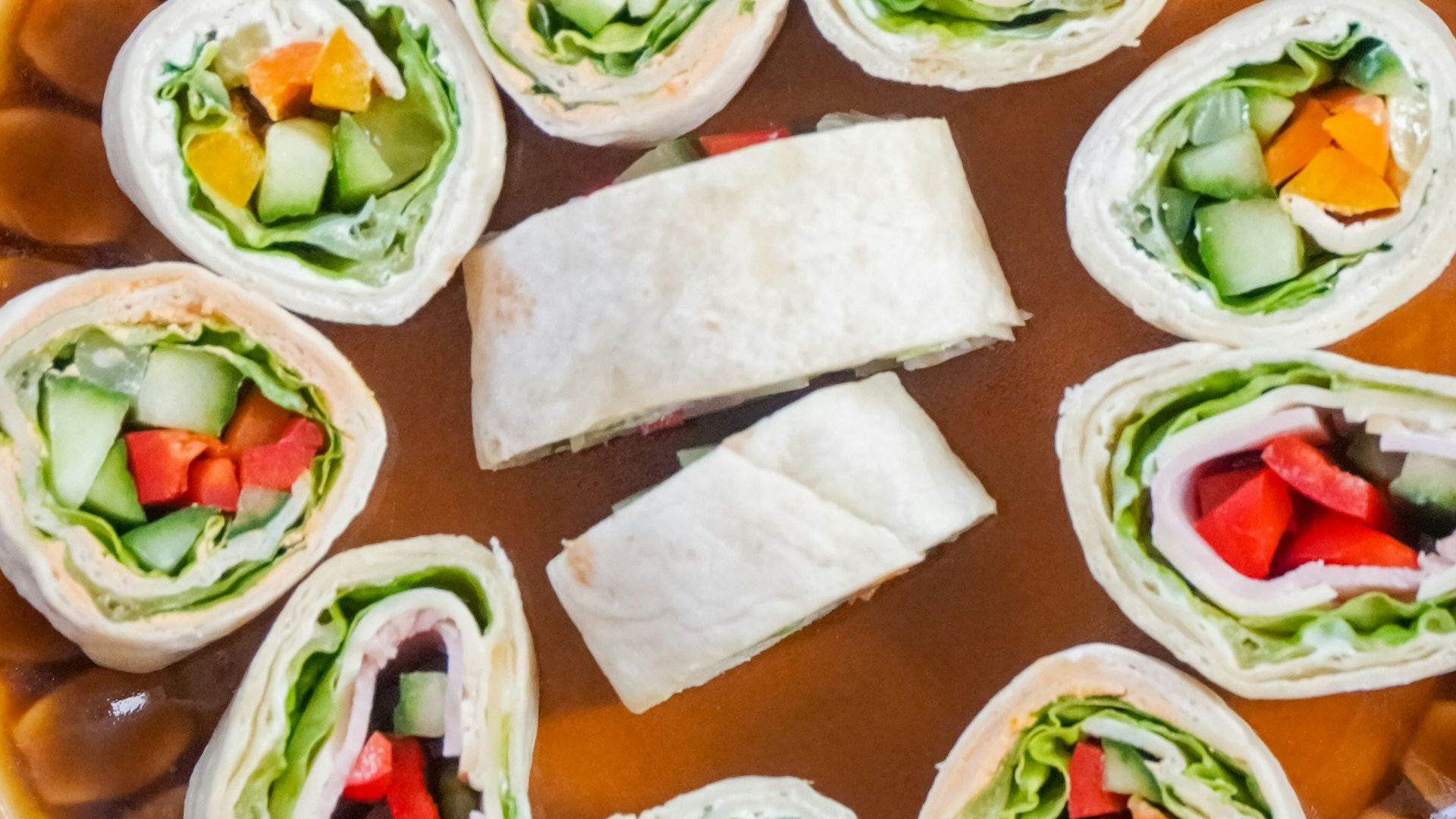Unique Food Rules In Other Countries
The next time you travel out of the country to explore another, keep in mind you should do your research before you land. Especially when it comes to food and dining, different countries follow different rules. What you're used to might not be the case somewhere else! If you want to pay your respects to the culture, here are 20 examples of international food etiquette you should know before traveling there.
 Photo by Polina Tankilevitch & cottonbro studio on Pexels
Photo by Polina Tankilevitch & cottonbro studio on Pexels
1. Japan - Slurping Noodles Is Polite
While eating loudly is generally frowned upon in most Western countries like Canada and the United States, over in Japan, it'd be considered rude not to do so. Don't be surprised when you fly to the country, head to a popular ramen spot, and hear slurping all around you. Slurping noodles in Japan is very normal and is actually how people show their appreciation for a good dish.
2. Thailand - Don't Use A Fork To Put Food Into Your Mouth
As we head over to Thailand, they supposedly have a unique rule that differs greatly from American practices. People online claim that in this country, it's considered rude eating your food (particularly rice dishes) with a fork. While you'll likely be given both a fork and spoon with your meal, the fork is instead used to push food onto the spoon rather than directly into your mouth.
 Photo by Pablo Merchán Montes on Unsplash
Photo by Pablo Merchán Montes on Unsplash
3. India - Don't Eat With Your Left Hand
It doesn't matter if you're left or right handed, if you're in India, it's considered very impolite to eat with your left hand. The reason might surprise you! In this culture, the right hand is believed to be clean while the left is considered "dirty." So while there's nothing wrong with eating with your hands, just be mindful of which one you use.
 Photo by Chris Benson on Unsplash
Photo by Chris Benson on Unsplash
4. China - No Flipping The Fish
The next time you're in China enjoying a deliciously cooked whole fish, you might want to remember that you shouldn't flip it over. Rooted in superstition, it's believed that flipping a whole fish over will bring you terrible bad luck.
 Photo by Elena Leya on Unsplash
Photo by Elena Leya on Unsplash
5. Chile - Never Eat With Your Hands
While we might enjoy chowing down on a burger and fries with our bare hands, this act is considered terribly rude in Chile. Let's just say "finger food" isn't really an appropriate term for them. Everything from sandwiches to fruit to onion rings are eaten with forks and knives in this country.
 Photo by Dushawn Jovic on Unsplash
Photo by Dushawn Jovic on Unsplash
6. South Korea - Use Both Hands When Receiving A Drink From Someone Older
South Korea places a large importance on proper drinking etiquette, especially if you're with someone older than you. If an elder is pouring you a drink, it's necessary for the younger of the two to receive the drink with two hands. It's how you show respect!
 Kai Hendry on Wikimedia Commons
Kai Hendry on Wikimedia Commons
7. South Korea - Look Away When Drinking With Someone Older
It's not just the pouring stage! Following up on our previous point, in South Korea, you also have to show respect to someone that's older when you're taking the shot. It's important that you turn away and cover your mouth as you drink. It's just how things are done over in this country!
 Photo by Samia Liamani on Unsplash
Photo by Samia Liamani on Unsplash
8. Russa - Never Mix Your Vodka
While you might be used to mixers or adding ice to your drink, if you're in Russia, you better be prepared to enjoy your vodka straight as is. The Russians sure know their vodka and this is the most respectful and preferred way of having it.
 Photo by Carlos Irineu da Costa on Unsplash
Photo by Carlos Irineu da Costa on Unsplash
9. Italy - Cappuccinos Only Before Noon
You may be used to ordering your cappuccinos at Starbucks no matter what time of day it is, but if you're in Italy, be prepared to get rejected. As it turns out, cappuccinos here are only served before noon! The Italians just believe this milky drink is meant only for the morning.
 Photo by Manki Kim on Unsplash
Photo by Manki Kim on Unsplash
10. Japan - Never Leave Your Chopsticks Upright In Your Rice
The last thing you want to do when you're in Japan is accidentally leave your chopsticks standing upright in your bowl of rice. While it might seem harmless to the majority of the world, in Japan, this action is actually done as an offering to the dead. Seeing this done so casually comes across as rude and inconsiderate.
 Photo by Marisa Harris on Unsplash
Photo by Marisa Harris on Unsplash
11. China - Eating With Your Left Hand Is Taboo
In China and some other Asian cultures, being left-handed is generally viewed as improper. Due to superstitious beliefs, most people will train to become right-handed, particularly in China. That's why you might get a couple of glances if you eat with your left hand in public.
 Photo by Josh Appel on Unsplash
Photo by Josh Appel on Unsplash
12. France - Bread Is Not An Appetizer
Over here in America, you might be used to enjoying some bread as an appetizer before your meal, but in France, it's anything but. We all know the French love their bread, but who knew that they followed different rules too? The next time you visit this beautiful country, it's good to know that bread is generally served as an accompaniment to your main meal and not a starter.
 Photo by Kateryna T on Unsplash
Photo by Kateryna T on Unsplash
13. Portugal - Don't Ask For Salt & Pepper
It might not seem rude to ask for extra salt and pepper, but in some countries, it is. For example, in Portugal, asking for extra seasonings is disrespectful to the chef or host. It implies that the food was not prepared to your liking.
 Photo by Peter Werkman on Unsplash
Photo by Peter Werkman on Unsplash
14. Brazil - Always Pass Dishes To The Left
It's not very clear why the direction matters so much, but in Brazil, it's considered polite to always pass dishes to the left and wait until everyone has been served before eating. We definitely see how it keeps things organized though!
 Photo by Lee Myungseong on Unsplash
Photo by Lee Myungseong on Unsplash
15. France - No Splitting The Bill
While it's not against the law or anything, you can expect a frown or weird look if you ever ask to split the bill or get separate checks at a restaurant in France. It's much easier there to just pay for the whole thing and split things between you and everyone else afterward.
16. Italy - Don't Ask For Extra Cheese
It's an unspoken rule in Italy that you don't ask the server for extra cheese, especially if it's a seafood dish. Most Italian dishes are already quite heavy and cheesy, so asking for more might come across as an insult to the chef; they might think you're unsatisfied with their method of preparation.
17. China - Leave Some Food On Your Plate
Interestingly, in China, they practice the opposite of most countries - it's more polite to leave a little bit of food left on your plate after a meal. Why? This indicates that your host served you a good amount of food and left you feeling satisfied. Leaving your plate completely empty might suggest you weren't being fed enough.
 Photo by Portuguese Gravity on Unsplash
Photo by Portuguese Gravity on Unsplash
18. The United States - Cleaning Off The Plate
In comparison to China, the US does things completely differently. Instead of leaving some food left on the plate, it's customary to finish the whole thing off if you want to be polite. Cleaning off the plate signals that you had a great meal and that you loved every bit of it. Think of it as a compliment to the chef.
19. China - Don't Cross Your Chopsticks
If you ever need to rest your chopsticks while eating in China, always place them side by side and never in a cross shape. Because little did you know, accidentally leaving your chopsticks in the form of an X signifies death. That's probably the last thing you want to do while enjoying a delicious meal.
 Photo by Clay Banks on Unsplash
Photo by Clay Banks on Unsplash
20. Britain - Don't Clink The Side Of Your Teacup
It's common knowledge that the British love their tea and have mastered the steps to getting the perfect cup prepared, but did you know there's proper tea etiquette involved too? For some, clinking your spoon against the sides of the teacup while stirring might be considered improper or even rude.
KEEP ON READING

20 Foods to Eat During a Heatwave











